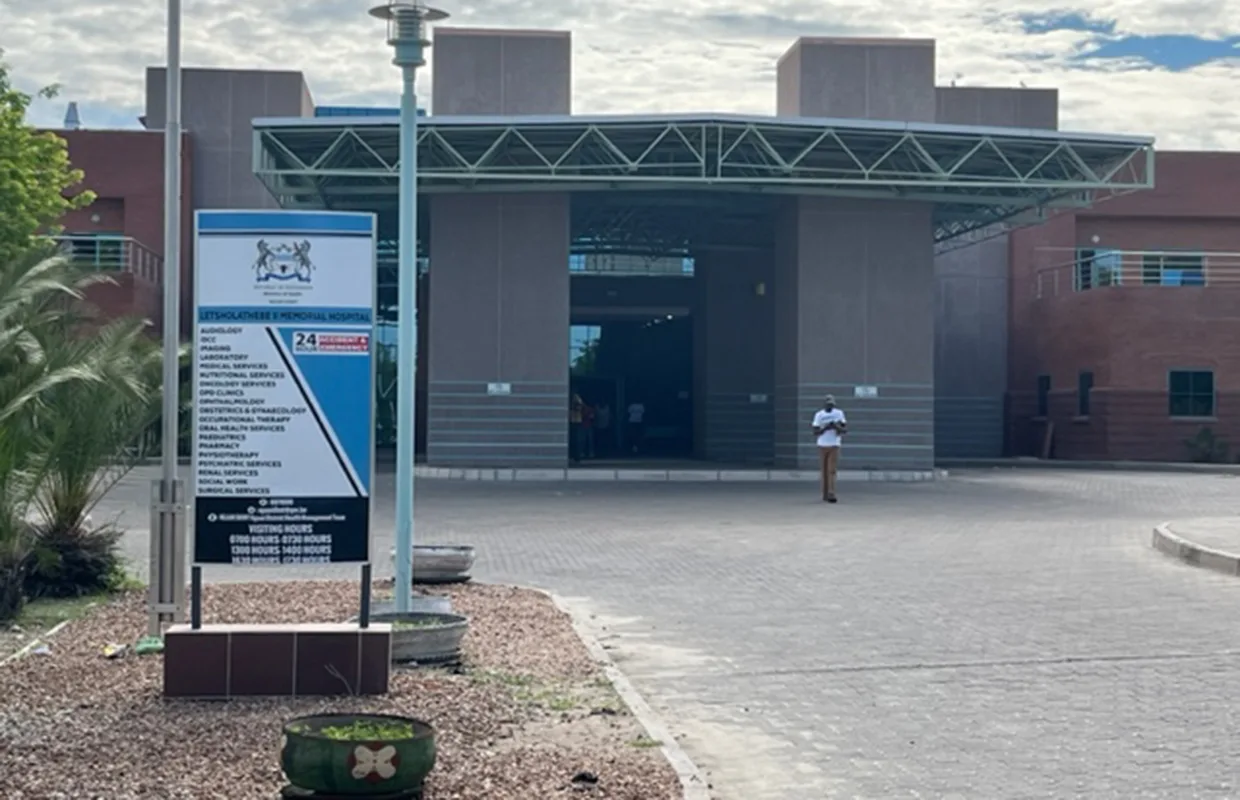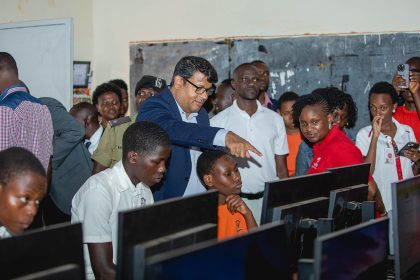Letsholathebe II Memorial Hospital was established in 2008 by the Government of Botswana and has been providing exceptional healthcare to local communities ever since. Hospital Superintendent, Dr Lebogang Mokotedi, gives us the full story of this game-changing facility.
FACILITATING HEALTHCARE EVOLUTION
As it grows rapidly, the healthcare industry in Botswana is committed to sustaining the needs of the nation.”
The opening words of Dr Lebogang Mokotedi, Hospital Superintendent at Letsholathebe II Memorial Hospital, emphasise the pace at which healthcare across the nation is evolving.
With the delivery of medical care in the public sector based on a decentralised hierarchy of regional referral pathways, the process begins with local health posts and clinics which can refer patients to one of 15 primary hospitals nationwide, each equipped to manage emergencies, whilst the majority of complex cases are referred to one of 17 district hospitals.
Healthcare remains essentially free for Batswana thanks to a committed and supportive government allocating the largest portion of the yearly budget to the Ministry of Health.
As a result, plans are in place to formalise a National Health Insurance scheme, revitalise primary healthcare, and develop additional and existing health facilities.
Challenges persist, however, with the majority of local healthcare workers opting to work in the private sector or abroad, alongside inefficiencies within the supply chain, and an exponential increase of non-communicable diseases (NCDs) of late.
“Although the Ministry of Health has been a beneficiary to a significant portion of the fiscal budget, admittedly, the budget is never enough,” Mokotedi explains.
This reinforces the need for a judicious utilisation of funds, a conscious effort to reduce inefficiencies, and the importance of strategic project prioritisation.
However, despite these challenges, Botswana continues to reach key milestones having been recently recognised by the World Health Organisation (WHO) for its efforts towards the elimination of mother-to-child HIV transmission, earning the country coveted Gold Tier status.
“The support we receive from international bodies such as the UN, WHO, and the US Agency for International Development (USAID), amongst others, has ensured critical programmes are in place to support healthcare delivery,” she passions.
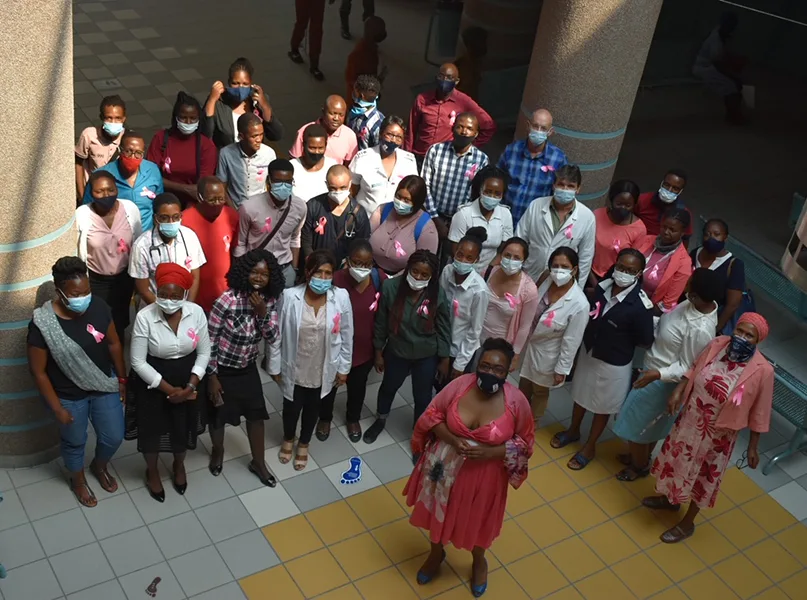
UPGRADING FACILITIES
Located in Maun, the second largest village in Botswana, Letsholathebe II Memorial Hospital is a 270-bed district hospital commissioned in 2008 to replace the 150-bed Maun General Hospital, which struggled to meet the healthcare needs of a rapidly growing population.
“Our hospital serves the population of the North-West district and as a referral institution for neighbouring districts – Okavango, Ghanzi, Boteti, and Tutume,” outlines Mokotedi.
Admitting between 350 and 400 patients per month with an average occupancy rate of 75 percent, the hospital also delivers an average of 55 babies per week.
Patient care is delivered through specialist-led outpatient and inpatient services, supported by 11 admitting wards, a 24-hour accident and emergency (A&E) department, and four recently renovated theatre rooms, with a new intensive care unit (ICU) currently being developed.
Offering round-the-clock access to laboratory and radiology services, Letsholathebe II Memorial Hospital’s radiology department boasts the only computed tomography (CT) machine in the region, offering plain radiography as well as sonographic modalities.
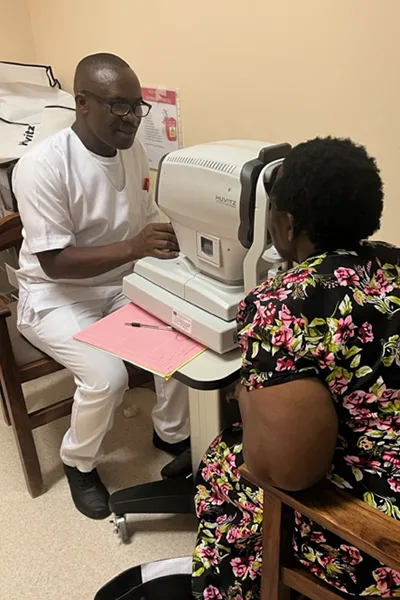
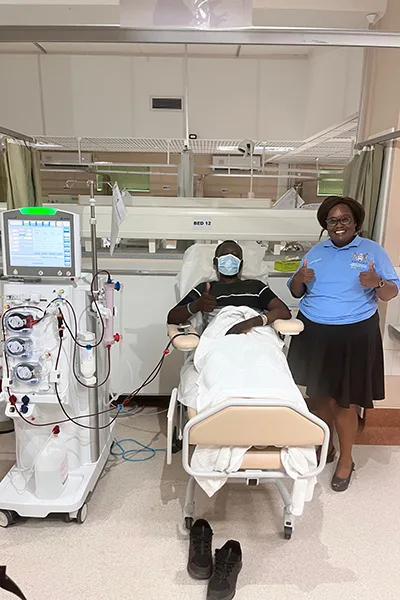
“Apart from the usual outpatient services we also have a newly renovated oral health unit, ophthalmology services, and oncology services,” she details.
The newly established haemodialysis unit, meanwhile, is operated by a private nephrologist, showcasing a successful private-public partnership model of service delivery.
The hospital is currently staffed by 575 dedicated healthcare workers, including 14 specialists, 14 medical officers, and 175 nurses.
“These numbers alone do not reflect the crippling shortages we’re facing with staffing or our reliance on temporary workers. For example, we have one audiologist, one physiotherapist, and only four radiographers to meet the needs of our catchment population.”
Elsewhere, the hospital supports training though collaboration with institutions such as the University of Botswana, Institute of Health Sciences, Boitekanelo College, and others.

“Our hospital serves the population of the North-west District and serves as a referral institution for neighbouring districts”
Dr Lebogang Mokotedi, Hospital Superintendent, Letsholathebe II Memorial Hospital
TRANSFORMATIVE CAPABILITIES
Having recently set up a haemodialysis unit at the hospital, Mokotedi reflects on the positive impact it’s had, particularly considering the growing prevalence of renal disease in the region.
The hospital was initially only able to support renal replacement therapy through peritoneal dialysis, which was a nurse-led service. As such, when patients needed haemodialysis, they would be referred to Francistown, a city 500 kilometres away.
“Often, this led to patients having to relocate there in order to access the thrice-weekly dialysis and therefore losing out on their social support systems,” she affirms.
The Ministry of Health supported the new haemodialysis unit by inviting private companies to bid for the service, resulting in a private-public partnership (PPP) with the Pholong Centre for Kidney Diseases and Dialysis (PCKD).
“The ward officially opened in November 2023 and was well received by community leadership and patients who could now receive this vital service locally.”
The centre currently has 12 beds and is set to increase by four more during the current financial year to cater for the growing need, with 65 patients currently receiving this service.
The collaboration has also ensured the nephrologist who runs PCKD, Dr Walter Moloi, supports the peritoneal dialysis team to ensure a comprehensive renal replacement service.
“To further strengthen the relationship, he is involved in skills transfer through the training of medical officers in catheter insertions during his monthly visits,” states Mokotedi.
The availability of this service in the region will also promote tourism.
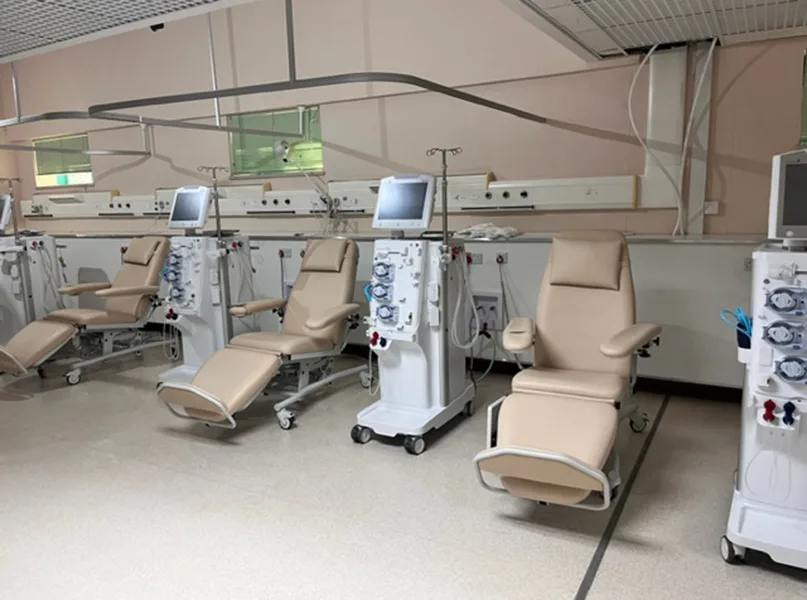
CARE FOR THE COMMUNITY
As the only district hospital in the North-west of the country, Letsholathebe II Memorial Hospital’s geographical location sets it apart.
Responsible for servicing a huge population as well as supporting neighbouring districts as a referral institution, the hospital’s support is crucial.
As such, management have been strategic in prioritising the maintenance and renovation of key operational areas, alongside acquiring key equipment.
Also known as the gateway to the Okavango Delta that is rich in wildlife, Maun has seen tourism in the area increase. The hospital therefore seeks to leverage its burgeoning healthcare resources to become more appealing to international clients.
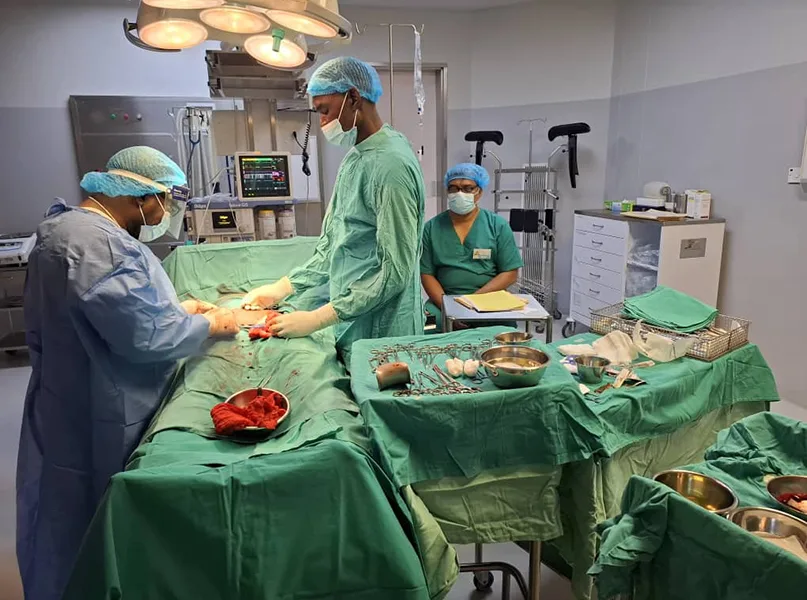
“We have a good stakeholder relationship with the tourism industry thanks to support from the Hospitality and Tourism Association of Botswana (HATAB), whose unwavering support of the health sector is exemplary,” Mokotedi tells us.
Thanks to the economic importance of tourism in the region, advocating for resources from the government becomes much easier.
The facility has therefore gained the support of key stakeholders who participate actively in the success of the hospital.
Its advisory committee, for example, is populated by leaders from the police services, political arenas, and local chieftains as well as a representation of people living with disabilities and traditional healers.
“Having key specialists in the hospital sets us apart from our neighbouring facilities and, as mentioned, we boast the only CT scan in the region as well as a recently established renal dialysis unit,” she finishes proudly.
With game-changing facilities such as these and cutting-edge technology at its disposal, Letsholathebe II Memorial Hospital looks forward to a bright future in healthcare delivery.



